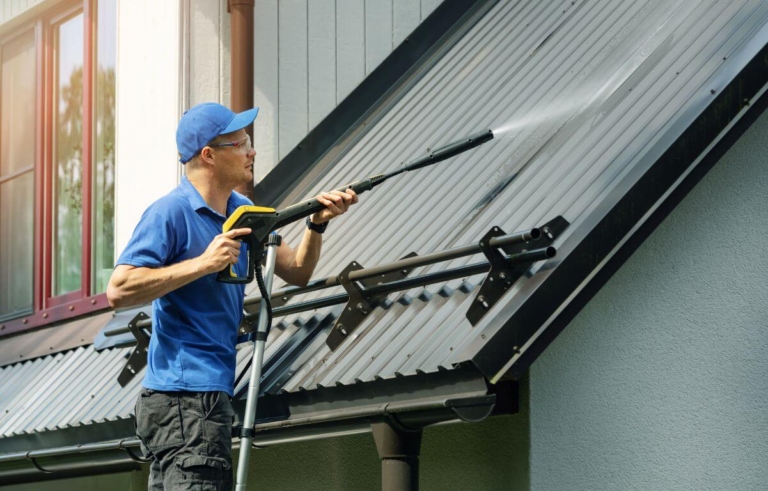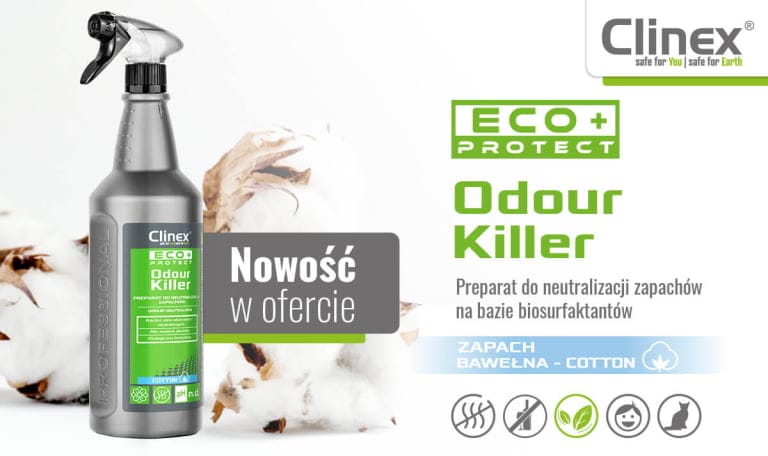Cleaning paving stones may seem difficult, but with the right methods it can be done effectively and without damage. In our article you will find a practical step-by-step guide that will help you restore your paving stones to their original shine. How to wash paving stones without damaging them? We give you a hint!
1. Cleaning paving stones? Only in the right weather

When cleaning pavement, the right weather is very important. When to wash paving stones? It is best when the temperature is at least 5 degrees, although it is worth doing it on slightly warmer days. Spring and early summer will be a good idea. In summer, it is best to clean the pavement in the early morning or evening. Why so? There are two reasons. One is less sunlight, which causes the cube to heat up. The temperature will also be lower at such times. Too high a temperature will adversely affect the cleaning process and too rapid evaporation of the working solution that will be used during washing.
2. Time to clear the area

So it’s time for step two. Before cleaning paving stones, clean the surface of sand and other contaminants. How to do it? This can be done manually using a brush with fairly dense bristles to remove sand particles. If the area to be cleaned is large, we recommend using a sweeper to thoroughly clean the paving stones. You can also clean the surface using pressurized water, the force of which will rinse and prepare the surface for cleaning.
3. Weed removal

The next step in cleaning the pavement is to remove moss, green efflorescence and weeds between the stones. After all, it will be necessary before the cleaning stage. How to remove moss from paving stones? To remove any green coatings, the ideal solution will be to use Clinex ALG. This is a specialized preparation designed to remove this type of contamination from paving stones and more. Appropriate dilution of the preparation will be needed. The working solution should be prepared at a concentration of 80-100 ml per 1 L of water, then spread evenly on the paving stones and wait for at least 15 minutes (a few hours is recommended, e.g. overnight), then washed with water under pressure. Clinex ALG, apart from removing green coatings, also creates a protective layer that protects and limits the conditions for the re-emergence of bad-looking coatings.

The product can be used for cleaning using cleaning accessories for pressure washers. After waiting the recommended time, wash everything off with water under pressure. Using a pressure washer can help remove weeds from cracks quickly and effectively. We leave the cleaned paving stones to dry completely before removing stains and dirt.
We write more about this topic in our guide – How to deal with unwanted greenery?
4. Removal of stubborn dirt and stains

After the paving stones are completely dry and the green coatings are removed, we can proceed to the next step. This time, cleaning the paving stones will involve removing stains and dirt. Where to start? Clinex S5 APC OUT will perfectly cope with this task. You will need a working solution of this cleaner. So you need to prepare one, depending on the pavement cleaning technique. This can be done both by hand and with a pressure washer. Then you need to wait about a minute and rinse the applied working solution thoroughly with clean water.
5. Washing paving stones – oil and grease stains

It’s time to clean paving stones from oil and grease stains . In addition to typical dirt, the pavement may also contain oil and grease stains that penetrate the surface structure. How to remove these stains? To remove stains, use a strong, penetrating cleaning agent. Such a preparation is Clinex Anti-Oil , which has been specially prepared to remove such dirt. It is intended mainly for removing oil stains from heavily dirty floors, e.g. in car workshops or production halls. It is also dedicated to removing oil stains from paving stones. We write more about this in the article Surface degreasing – how to effectively remove fat?
6. Protection of paving stones

Once it is completely dry, you can proceed with any repairs to the paving stones, as well as filling in sand in the gaps between the stones. During pressure washing of paving stones, a considerable amount of sand is washed out under the pressure of water . For this reason, it is worth refilling after cleaning.
7. Impregnation of paving stones

After cleaning the paving stones, we can also additionally impregnate the paving stones. Why do this? Impregnation is intended to protect the paving stones against the penetration of dirt and grime into the micropores.
We hope that our article has clarified the topic of washing paving stones. Regular cleaning and maintenance ensures its durability and aesthetics. So it’s worth taking care of it.
Related articles:






